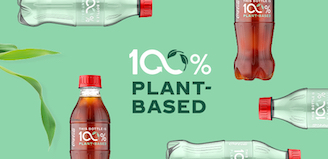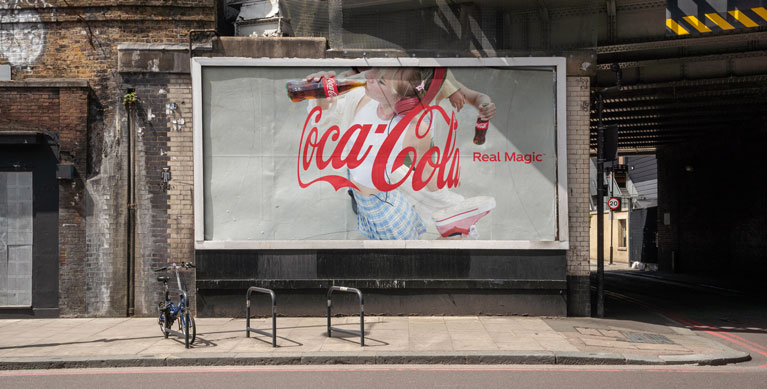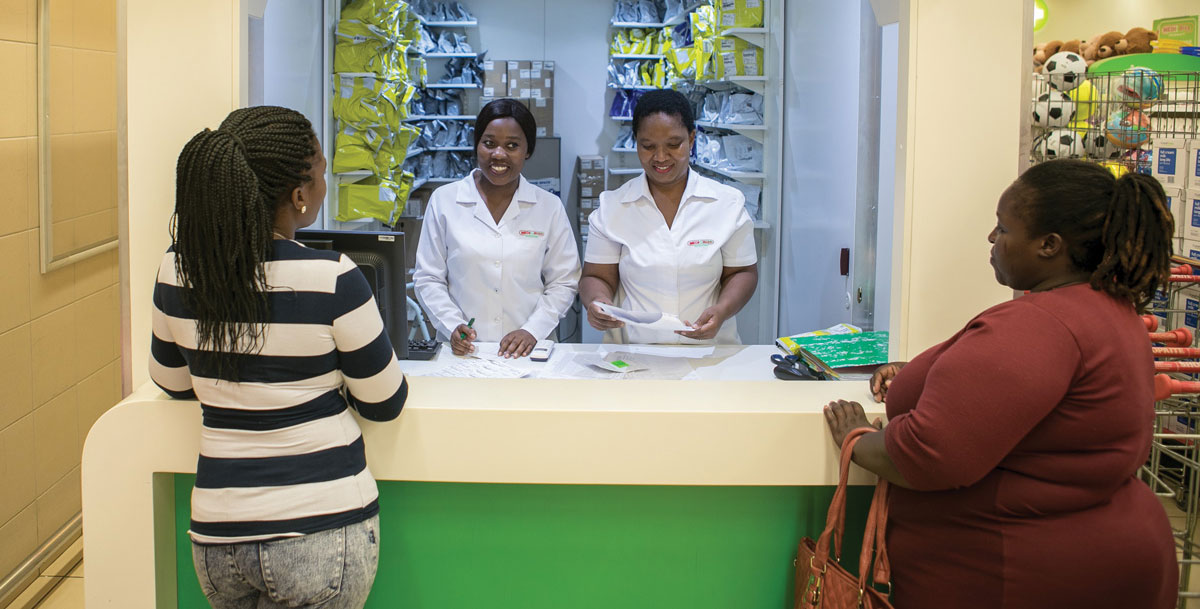
'We are Living Proof:' Sprite Teammates Embody "Infinite Possibilities and Zero Limits" Campaign
11-17-2022
Sprite Zero Sugar collaborated with Marvel Studios’ Black Panther: Wakanda Forever to empower tomorrow’s creative talent to explore and patiently pursue their true gifts.
For the two Sprite NAOU leads – Brand Director, Terika Fasakin and Creative Director, A.P. Chaney – building the campaign from concept to screen hit close to home. Both are Black women who attended HBCUs, pivoted careers and share a passion both for giving back to communities that helped them along the way and inspiring the next generation of multicultural creatives.
We caught up with them for an inspiring conversation about their nonlinear professional journeys and how “Infinite Potential and Zero Limits” has been a career-defining opportunity.
Let’s start by sharing your ‘Origin Stories'.
A.P.: Growing up in a small suburb of Minneapolis, I was always the “token Black girl,” particularly in high school. It was when I got to Spelman College, in Atlanta, that I was able to truly discover and define who I am as a woman. I was no longer defined by my race, and I was able to learn the A.P. I am today. The curious, creative one who likes to make people laugh, and much more. My achievements and what I looked like no longer defined me.
Both of my parents came from low-income families and worked their way up to executive positions at multinational CPGs. They wanted me to see and explore the world, so I wasn’t allowed to go to college within an eight-hour drive of Minnesota. Moving from the Midwest to the South was definitely a transition! It was a bit uncomfortable at first, but quickly began to feel like home. I'd never seen so much diversity, which most people wouldn't expect from an HBCU, but it's quite the opposite.
I studied history, which helped shape my storytelling by understanding culture and behavior. I had two job offers after graduation: one was an entry-level marketing position for an NBA basketball team and the other was as a paralegal at a large antitrust law firm in Washington, D.C. My mom is a lawyer, and I thought I wanted to go to law school, so I took the latter. Within a few weeks, I realized I hated it and started applying to grad school. Fast forward a year and half later, I received my Master’s of Public Relations at Syracuse. I worked for a PR firm and, yep, realized I didn't like it that either! I continued to try different communications jobs and landed at a sports marketing agency where I had my first creative role.

"As I matriculated through my career, I realized again that I was a minority, but that my background and experiences were my true power." - Terika Fasakin
Terika: I’m from Atlanta. My mom moved here to work for The Coca‑Cola Company in computer science when she was pregnant with my younger sister and me—which is crazy because I've had both of my kids during my time at Coca‑Cola. She sent us to Georgia Tech engineering camps every summer. I’m almost the opposite of A.P.! I was not a fan of language art classes but loved math and physics. By the time I graduated high school, I’d had so much exposure to the tech world through my mom's friends and those camps. Engineering felt like a natural fit.
I got a tennis scholarship to North Carolina A&T State University (Aggie Pride!) and majored in mechanical engineering. As an HBCU student, I no longer saw myself as a minority engineer because I was surrounded by my peers. As I matriculated through my career, I realized again that I was a minority, but that my background and experiences were my true power.
Right after undergrad, I worked for the U.S. Department of Energy in a manufacturing facility that built nuclear bombs for the military. After seeing how passionate my peers were about pursuing advanced degrees in engineering, I realized that I had picked my major because I was good at math and science, not because I was truly passionate about it. So I started the process of discovering what I’m truly passionate about, which is creating connections with people. I got my MBA from the Kellogg School of Management in Chicago. I quickly fell in love with marketing as an intern at a big CPG company, where my boss and mentor was a former engineer who’d transitioned to marketing. That made me feel like I was on the right track, and I haven't looked back since.
Why has this campaign been so special to you?
A.P.: My mom always said: “If you have it, give it back.” And Marian Wright Edelman, a fellow Spelman alum who founded the Children's Defense Fund, said: “You can't be what you can't see.” I’ve taken both of those quotes to heart. I believe it’s important to give back to the HBCU community that gave me so much and fostered who I am today. And, I would say it’s equally important to be visible. Because once you're visible, people can see a pathway or opportunity. When I was in college, I didn't even know what a copywriter was, but it ended up being my first title in the creative world. For Terika and me — two Black women and graduates from HBCUs with strong ties to S.T.E.A.M.— leading this campaign shows a pathway to careers and opportunities people might not otherwise know existed.

Terika: This has been the first time in my career where a campaign and business need has naturally intersected with my background and life experiences. It was an opportunity to create more of a majority story than a minority story for the masses to enjoy. We featured my favorite quote from one of our creators on Sprite Zero Sugar bottles for the campaign: “Be the change that you want to see.” In these roles, we’re now able to be the change. That’s both a huge responsibility and huge honor, which is why A.P. and I have pushed ourselves throughout this process to be true and authentic and hold ourselves to a high standard. We both knew the gravity that comes with representing the iconic Sprite brand and partnering with a franchise like Black Panther, which has and will continue to have such a positive cultural impact.
You’re both career-changers. How do you apply your prior jobs and paths to your current roles?
A.P.: Being a paralegal helped me problem-solve and build a case narrative. Importantly, it also helped me realize I need to follow my passion and purpose versus a paycheck. I pour a lot of myself into my work, so if I'm not happy in my job, I'm not happy at home. My journey as a Black woman from Minnesota who graduated from an HBCU in the South and has lived all over the United States has shaped my perspective and helped me stay humble and hungry. Without the totality of these experiences and following my mom’s advice to always try new things, I wouldn't be here at Coca‑Cola.
Terika: As marketers, we all bring to the table different experiences, backgrounds and perspectives, and have unique centers of gravity. One of my superpowers has been the ability to draw insights from facts, starting with the numbers. Because while we create campaigns to touch consumers’ lives, we’re also building brands to drive business growth. Getting in a room to analyze performance is what energizes me. That would not be possible without engineering, which taught me to find a root cause and develop solutions to challenges and opportunities.
"Being a paralegal helped me problem-solve and build a case narrative. Importantly, it also helped me realize I need to follow my passion and purpose versus a paycheck. I pour a lot of myself into my work, so if I'm not happy in my job, I'm not happy at home. " - A.P. Chaney
Were you big Black Panther fans coming into this project?
A.P.: What has really drawn me to Black Panther and particularly our campaign are my 16- and 18-year-old sisters. They’re both huge fans, and one dreams of becoming a Marvel screenwriter one day. They aspire to be these women and these characters featured in the “Hall of Zero Limits”, and now truly believe there are no limits to what they can do through representation in Black Panther and campaigns like ours.
Terika: I remember crying when I saw the first movie with my husband, who’s a Marvel fanatic! For a movie with so many people of color represented to not be considered niche and make such a mainstream impact made me an instant fan. I was one of the millions of young Black people who dressed up in traditional African attire inspired by the film and embraced that feeling of power and confidence.

What do you want people to take away from this campaign?
A.P.: I want this campaign to inspire people to explore their true passion and purpose, and to not feel pigeonholed into a role or career. We also want to remind them there is no shot clock or timeline to your passions or purpose – Terika and I are living proof of that.
Terika: This story sums it up best. My 12-year-old niece loves to draw. She was at our house recently watching the videos through the AR experience. She clicked on the storyboard artist and said, “Oh my gosh, I could do this!” She didn't know that Black women have these types of careers, or even that storyboard artists as a profession existed. And that's exactly what we want to do with this campaign.


